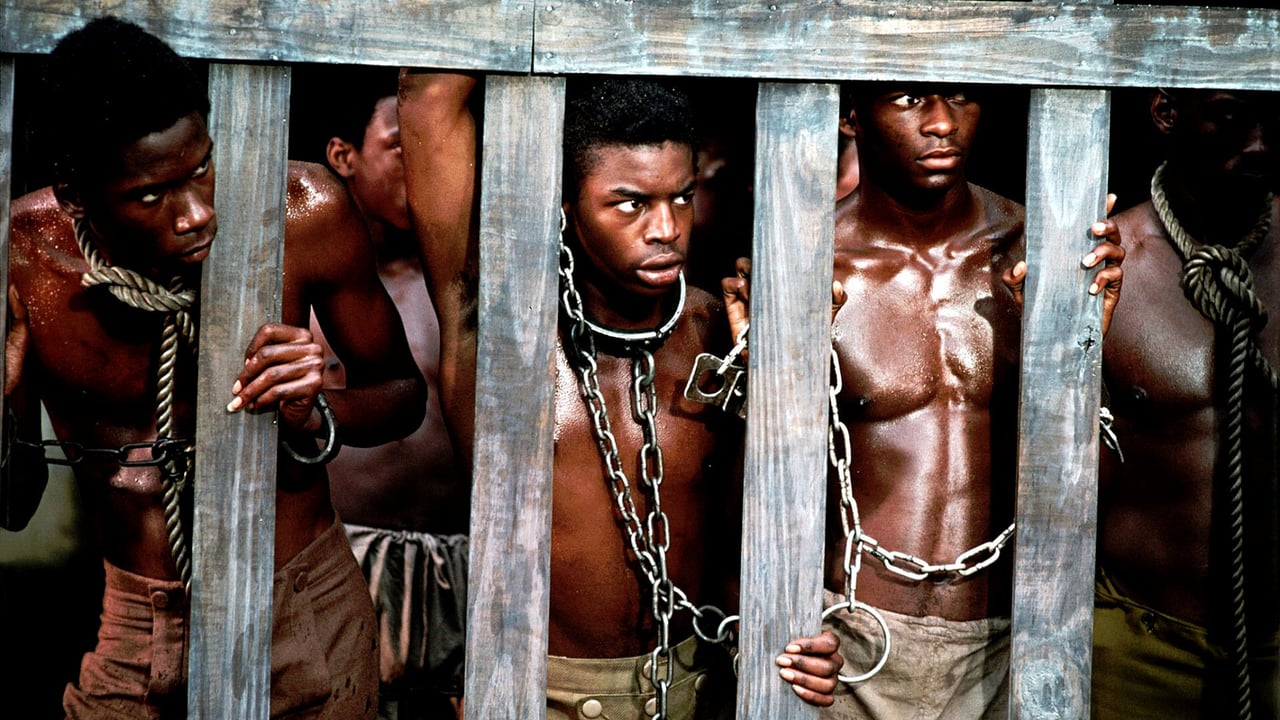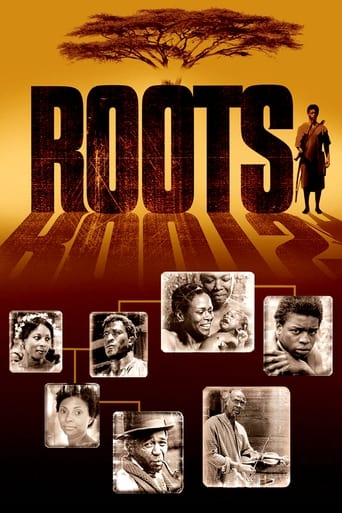

Roots the miniseries is based on the book Roots written by Alex Haley and is said to be the story of a line of his ancestors that he traced back to an African named Kunta Kinte who was kidnapped from Africa in 1766 or 1767 as part of the slave trade and sold into slavery in Annapolis Maryland in 1767. The story starts with Kunta's birth in 1750 and shows his capture and trip to America. And it shows him being sold into slavery and him being taken to a plantation in Virginia. He is given the name Toby and resists being called that and being a slave. The series follows his life and his descendants lives up to 1870. Alex Haley was accused of plagiarizing some of Roots from a book called The African and Haley's claims that he had traced his ancestry to a very specific individual and village in Africa were refuted by researchers but the series does give an accurate view of slavery in general terms. The series is amazing at showing the bad stuff slaves suffered and the cruelness of whites. And it is extremely moving. This is arguably the best or one of the best things ever filmed.
... View MoreLet me start off by saying I don't hate this series. In fact, it is actually quite good. The problem is Roots has become somewhat of a black culture idealization of what slavery was like, and it is not even historically accurate.In the 18th century, the West African slave trade was a seasoned machine, and other than the Portuguese, "white men" rarely set foot on the continent for more than a few weeks, as they lacked the immunities to fight off many of the diseases that were prevalent in the region. As such, the slave trade was really conducted at the auction block, after the slaves were captured. "White men" didn't often go and capture their slaves themselves, they bought them from tribesman and other more prominent African slave traders. The concept of owning slaves has existed well before the invention of the boat, so until the invention of the boat and then the pressures from the Catholic church and other churches to stop enslaving its own people, slavery was a way of life that rarely migrated beyond the immediate reaches of that particular countries borders.It is only in recent centuries that slavery crossed oceans, a time when everybody was purchasing slaves. Half the population of Ireland was wiped out, lots of poor European countries were wiped out, the Philippines even up until the early 1900's, West Africa, East Africa, China, Russia, etc. There is obviously an agenda with Roots as the writer has personal feelings of animosity however I feel the historical inaccuracy for the beginning of this mini-series seriously hurts the amount of respect I can give to the show as a whole.Like I said its good if you are looking at it as a fictional show and nothing more, but if you ever use Roots to combat someone who actually knows history, you will lose every time.Roots trivializes the slave trade for the black community and creates a slanted view at the atrocities that existed far before a black man was ever enslaved.
... View MoreOne of the best mini-series to grace the small screen. Told through span of several generations of writer Authur Haley's ancestors. The depiction of the slave era is at times hard to watch but should be seen by all. The stellar cast brings both young (at that time) talent and many veteran stars of both the big and small screen. Both Levar Burton, and John Amos bring to life the story of Mandinka tribesman Kunta Kinte who is taken into chains from his African homeland to Colonial America and sold into slavery.This series does not hold back either the depiction of native African life nor the language and violence of slave life in America. If you have a younger audience you might want to talk some about the content but nothing is presented in the series that is not done to the highest standard and quality.
... View MoreToo many people still believe that Roots is the true story of Alex Haley's ancestors. It is their story, all right, but almost entirely a work of fiction.Mr Haley's claims to have spent 20 years under-covering his family history were quickly found to be false. The book (even Haley admitted it was a novel, and "largely" fiction) is a work of the imagination, not history. And not even his own imagination. It was freely plagiarized - whole pages intact -from the work of Harold Courlander - who incidentally wasn't an African-American.Roots is compelling TV, but like Frankenstein or The Shawshank Redemption, it is a work of fiction, and a mistake to read too much into it.
... View More